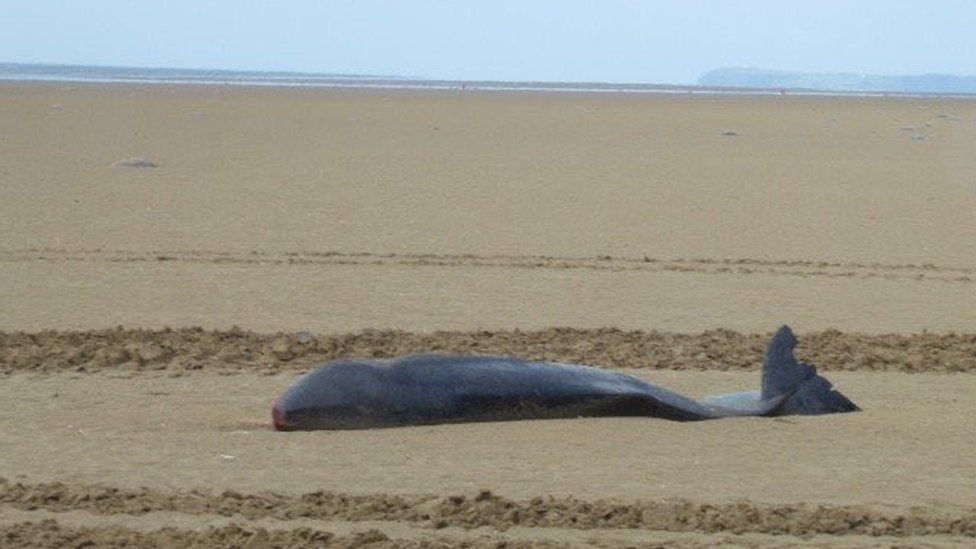Rare sperm whale washes up on Carmarthenshire beach
- Published

Scientists at London Zoo are investigating after a rare pygmy sperm whale washed up on a Welsh beach.
The 2.5m (8.2ft) long adult male was found on Pendine Sands, owned by the Ministry of Defence, in Carmarthenshire on Tuesday.
It is being analysed by the UK Cetacean Strandings Investigation Programme (CSI) at the Zoological Society of London's (ZSL) Regent's Park site.
The carcass is only the 14th pygmy whale to be found on UK shores.
Little is known about the species' habits, except that the UK is believed to be at the northern end of its range.
Marine biologist Rob Deaville, head of the Defra-funded CSI, was tasked with dissecting the whale to determine whether human impact on the marine environment caused its death.
"We're looking at different possibilities: chemical contaminants in the environment, physical pollution such as plastics, noise pollution from shipping and certain offshore industries, by-catch from fishing, or a different cause of death altogether," he said.
In a video following the examination, Mr Deaville said the whale was in "possibly moderate nutritional condition" with "no evidence of recent feeding".
"That's really a consistent picture with what we see with a lot of these offshore pelagic animals, or oceanic animals, that come in close to shore and tend not to be able to feed, and then of course they may strand and that's it," he said.
Its ultimate cause of death will be determined after full analysis of samples.
However, Mr Deaville added: "It certainly looks like it's very consistent with an out-of-habitat animal in the wrong place, at the wrong time."
He said scientists only knew about pygmy sperm whales through stranding events, and that samples and data gathered would feed into research for years to come.
"Although they are obviously sad, they give us a chance to try and learn as much as we can about animals like these, which are actually incredibly hard to study in the wild," he said.
- Published29 April 2019
- Published27 November 2014
- Published13 October 2011